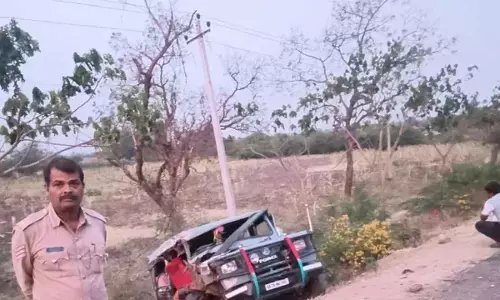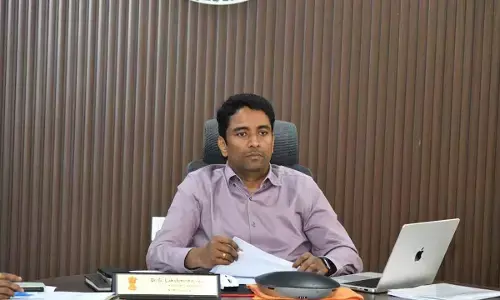Coronavirus pushes mental health services to back burner

Dr Sabina Rao, Columbia Asia and Dr. Pallavi Joshi, Consultant-Psychiatrist, Manipal Hospitals, Whitefield and Dr Bhargavaraman RP, Regal Hospital
The Covid-19 pandemic has disrupted or halted critical mental health services in 93% of countries worldwide. This has been revealed by the World Health Organisation
Bengaluru: The Covid-19 pandemic has disrupted or halted critical mental health services in 93% of countries worldwide. This has been revealed by the World Health Organisation.
Offering his insight on this, psychiatrist at Regal Hospital, Dr Bhargavaraman RP said, "The pandemic has brought in significant challenges and hence a reduction in mental health service delivery both in outpatient and inpatient hospital services. There has been a substantial reduction in face-to-face outpatient services, in view of the risk of exposure and the same with inpatient services. With the revision of Telepsychiatry guidelines in India, the service delivery is gradually improving in the outpatient ward."
"There has been a significant increase in the number of people seeking help for obsessive compulsive disorder (OCD) and other forms of anxiety and depression. Current pandemic has been a major stress contributing to the same. Further increase in people accessing help for the above has been a consequence of significant economic hardship, uncertainty, social isolation and fear for personal safety. There is a possibility that prevalence in depression and anxiety itself has gone up in this situation as a consequence far reaching impact on almost every sector of population and economy," he added.
Explaining the gravity of the situation, Dr Anitha Chandra, Consultant – Psychiatry, Aster CMI Hospital said, "A majority of the populace in Bangalore is predominantly working-class and has undergone a tremendous amount of stress during the pandemic. There are a host of issues such as anxiety, illness, fear, burnout, rising domestic violence, increased substance abuse, cash crunch, and job losses which have led to an increase in stress among the families and the individuals during the pandemic."
"While most people still visit relevant specialists like cardiologists for palpitations and pulmonologists for breathlessness. However, they often fail to visit their psychiatrists but most of the time they are routed to the psychiatrists by these specialists.
Hence, even the awareness around the need to visit psychiatrists is still quite poor. We saw an increased number of anxiety cases during the pandemic. They ranged from first episode severe anxiety in late life like in the 40s and 50s who were previously functioning well. It also brought many OCD presentations in people with an obsessive personality. It worsened mental health and caused relapses in people with pre-existing conditions," she said.
Dr. Neeraj Raj B, Consultant Psychiatrist, Aster RV Hospital said that there have been increasing cases of anxiety and stress during the lockdown due to the disruption of regular pattern of living where a person earlier could turn to multiple options to cope with difficult situations – for example, people could go out on the weekends, socialise, meet friends, go for trips, go to the gym, etc.
"These would all provide opportunities to cope or release pent-up emotions. Now since everything has become limited, people have fewer options to cope.
There is an increased feeling of isolation, fear and anxiety about health, uncertainty about the future, financial insecurity, increased chances of family conflict, which are all contributing to anxiety and stress. Working professionals and senior citizens are particularly prone to this," he explained.
Dr. Sabina Rao, Consultant – Psychiatrist, Columbia Asia Hospital, stated that the need for mental health services has been increasing since the start of the pandemic.
"The uncertainty of the future, the newness of the virus, the morbidity and mortality are all causing a significant degree of anxiety.
The brain is better at processing the worst "known" than the "unknown". The whole uncertainty of the pandemic, its course, guidelines, treatment is changing almost weekly and this is the most challenging aspect for people. It is really important to scale up mental health services, whether it is through helplines, counsellors or psychiatrists," she added.
Dr. Himani Khanna, Developmental Pediatrician & Co-Founder of Continua Kids explained that the daily lives of individuals and children have changed.
"The challenges being faced by people from various sectors like front-line workers going to work with the fear of bringing the infection home, students adjusting to online schools with complete absence of peer interactions, threatened livelihood , poverty due to unemployment, loss of lives to dear ones have led to the increase in the mental health concerns.
Investment in mental health programs, providing psychosocial support, building a task force to support the mental health needs of individuals and bringing awareness can help us build an emotionally resilient society," she opined.
Gopi Krishnaswamy , Mindfulness Coach & Regional Lead at Google born Search Inside Yourself Leadership Institute stated, "The stress we create results in the professional and personal setbacks. Not the other way around. We tend to blame things around us for the stress in our lives when stress is nothing but our response to the things around us. When we change the way we look at things, the things we look at, change. A lot of the 'pressure' therefore is due to poor mental health. Improving it through physical and mental discipline and training reduces the way we perceive pressure."
Photographer and Indian Mom influencer, Shweta Tanwar Mukherjee expects the people to address mental health issues as they respond to any physical illness.
"This year's 'World Mental Health Day' comes at a time when everybody's been staying indoors, with our day-to-day activities being disrupted, and many of us have felt the negative effects on our mental health. Mentally it has been a tough journey for all of us with adverse impacts on our body too. We should take care of our mind like we care about our body. It's crucial to follow meditation routines, regular exercises, a healthy good diet and communication with family and friends will be an exemplary effort towards infusing positive energy in yourself," she stated.
However, it has been observed that there is a stigma attached to mental illness.
Dr. Pallavi Joshi, Consultant – Psychiatrist at Manipal Hospitals, agrees that there is indeed a stigma even in metros, but the situation is changing slowly but definitely.

















